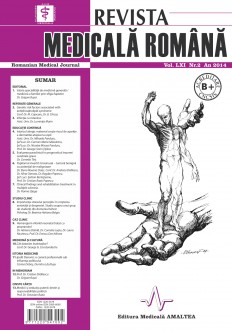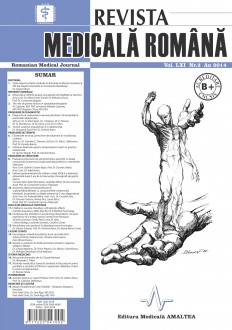SELECT ISSUE

Indexed

| |

|
|
|
| |
|
|
|

|
|
|
|
|
|
|
HIGHLIGHTS
National Awards “Science and Research”
NEW! RMJ has announced the annually National Award for "Science and Research" for the best scientific articles published throughout the year in the official journal.
Read the Recommendations for the Conduct, Reporting, Editing, and Publication of Scholarly work in Medical Journals.
The published medical research literature is a global public good. Medical journal editors have a social responsibility to promote global health by publishing, whenever possible, research that furthers health worldwide.
GENETIC RISK FACTORS ASSOCIATED WITH ANTIPHOSPHOLIPID SYNDROME
ABSTRACT
Antiphospholipid syndrome (APS) is characterized by venous or arterial thromboses, fetal losses and thrombocytopenia, in the presence of antiphospholipid antibodies (aPL), namely lupus anticoagulant (LA), anticardiolipin antibodies (aCL) or antibodies directed to various proteins, mainly beta2-glycoprotein 1 (β2-GP1), or in the presence of all three. It is possible that some people with APS have a genetic predisposition for developing this syndrome. Genetic susceptibility related to aPL and APS has been extensively examined during recent years. It is becoming increasingly clear that interactions between more than one genetic abnormality or between a genetic factor and environment components determine whether and when an individual will suffer from venous thrombosis. Given the fact that APS is characterized mainly by the presence of thromboembolic events, it seems perfectly plausible that several genetic factors may also be involved in its pathophysiology. Despite the strong association between aPL and thrombosis, their pathogenic role in the development of thrombosis has not been fully elucidated. This review focuses on some of the genetic risk factors associated with APS.
Keywords: genetics, antiphospholipid antibody, antiphospholipid syndrome

